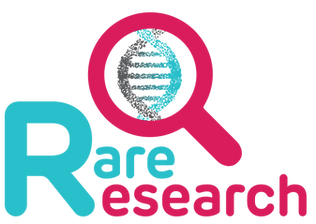
rare
research

RDSA research focuses on key, patient centric issues relevant to the local and global rare disease and congenital disorder communities. Targeted projects provide an evidenced-based foundation for our advocacy work, connect researchers and patients, and highlight the lay expertise of those living with rare diseases and congenital disorders.
Spearheaded by Dr Helen Malherbe, RDSA underpins the RDSA advocacy efforts.
-
Epidemiology of rare diseases and congenital disorders: This project aims to collate relevant epidemiological data for rare diseases and congenital disorders sourced from published research, credible surveillance systems and other evidenced based approaches such as modelling.
-
Definitions and Terminology: This project aims towards achieving global consensus on terminology and definitions in the field of rare diseases in association with global partners
-
Rare Diseases Research Database: A repository for translational researchers working on rare diseases or congenital disorders to promote collaboration and networking, identify areas of new research for development and to prevent duplication of effort and optimise use of resources countrywide.
-
Research Forum: A forum for patients and caregivers to connect and share their lay expertise with clinical researchers and contribute to translational research agendas.

Dr Helen
Malherbe
Director: Research & Epidemiology
Associate Professor: Centre for Metabolomics, North-West University

Ankia Greyling
Ankia is a recent honours graduate from the University of the Witwatersrand where she majored in Human Genetics and is also currently completing a counselling course at LifeLine, Johannesburg.
Ankia is particularly interested in genetic conditions and their causes and is passionate about enhancing the quality of life of those impacted. She hopes to pursue a Master’s degree in Genetic Counselling in the future to make a meaningful difference in the field and to help individuals and families receive the support they need.
Research & Patient Community Assistant
the benefits of joining
-
Receiving up to date information on the rare disease and congenital disorder landscape in South Africa, and globally.
-
Support and assistance with medical aid requests.
-
Peer-to-peer support (connect with others HCPs treating conditions that you are working on)
-
Access to educational support (CPD events)
-
Access to latests research and clinical trial news

-
Helps us improve the data on prevalence and incidence of various rare diseases and congenital disorders,
-
We are able to develop a referral network across HCPs with specific interests
-
We get a better understanding of what our community needs.
how you joining helps us at RDSA
costs for
academic researcher
-
Registered Healthcare Professionals:
R525 per annum
-
Students registered at a relevant academic institution: R157.50 per annum

